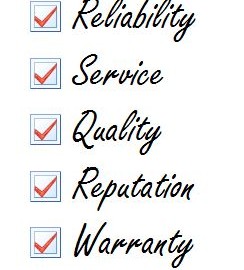In Texas, only specialty contractors (HVAC, fire sprinkler systems, plumbing, electricians and well drilling/pump installation specialists) need to be licensed. These licenses are administered through the Texas Department of Licensing and Regulation.
As this time, trades such as home builders, general contractors, roofers, and foundation companies are not required to carry a state-level license or registration. Depending on the municipality or County where the contract work is to be performed, local requirements can come into play. Aside from required permits, local ordinances may additionally require City registration, or membership to a voluntary association, such as the Roofing Contractors Association of Texas.
Homeowners and Buyers share concerns about what constitutes as a “professional qualified contractor” where roof work is concerned. Without a license requirement, what is to stop anyone from slapping a logo on a vehicle and calling themselves a roofer? The answer: nothing. Some state legislators are working to change that, but until reform happens, consumers must take steps to protect themselves.
How can concerned homeowners protect their interests?
Homeowners have an advantage in shopping for contractor services when they use the internet as a report card. Starting with referrals from trusted resources (family, friends, neighbors and Realtors), they can use third party services like the Better Business Bureau, Angie’s List, Yelp, and social media channels to read consumer reviews.
Other credibility points might include industry manufacturer certifications (e.g., GAF, Owens Corning or CertainTeed), or affiliation with voluntary associations such as the Roofing Contractor’s Association of Texas (or regional chapter), or the National Association of the Remodeling Industry.
Two clear indicators that a company might be shady is if they ask for money up front, or if they cannot provide proof of insurance. Even though insurance isn’t required, a homeowner is setting themselves up for liability if a contractor is injured while working on their property.
NTRCA provides a comprehensive list of questions to help determine if you are hiring a legitimate, experienced roofer.
What should a Buyer require of a homeseller when roof work needs to be completed prior to closing?
Repair requests are best when they are specific and detail out expectations. Buyers should require that a professional, qualified contractor be used, and work with Seller parties to come up with a definition of what credentials constitute “professional” and “qualified” in both parties’ minds. Ideally, a Seller might allow Buyer input on vendor selection, and the choice of materials as well. Above all, warrantable receipts to document the work performed should be provided to a Buyer.

